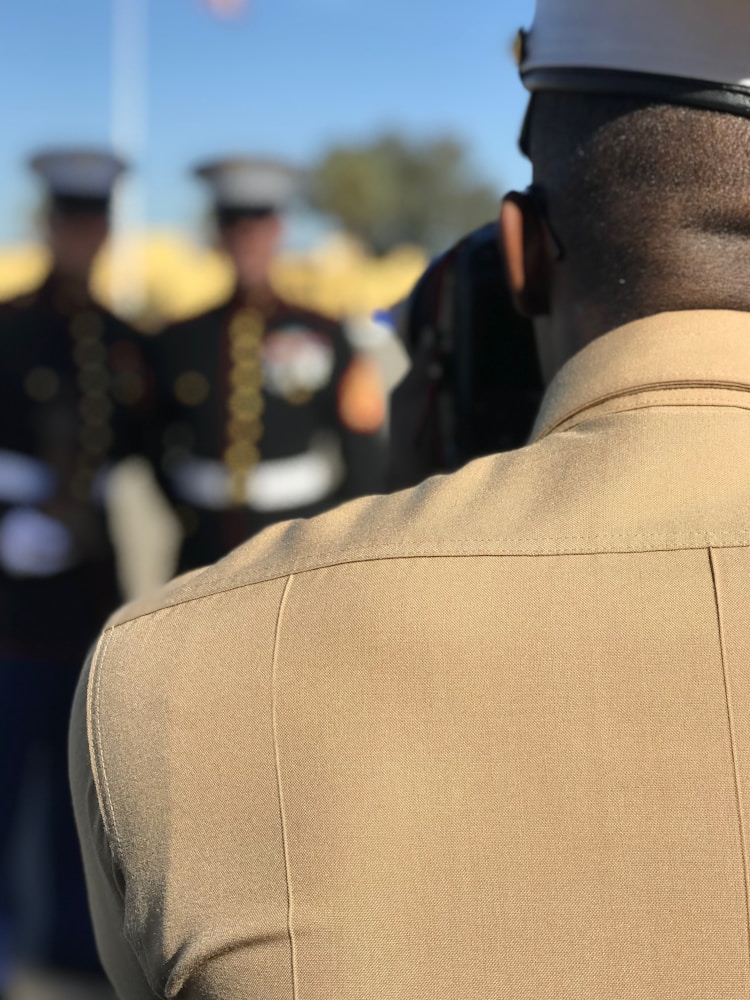When the government shuts down, it doesn’t just close museums and delay paperwork. It stops paychecks. For the people who wear the uniform, that pause hits hardest. During the most recent federal shutdown, something unusual happened — an anonymous donor stepped in with a $130 million gift to help cover military salaries. It was an act that stirred gratitude, confusion, and a flood of questions about what happens when private money fills a public gap.
Let’s walk through what this moment really means — for the troops, for the government, and for all of us watching how power, money, and patriotism collide.
When the Paychecks Stopped
A government shutdown sounds technical. It’s not. When it begins, real families feel it. Federal employees are furloughed. Pay schedules freeze. Bills pile up.
For service members, it cuts deeper. Military life doesn’t stop because of politics. Soldiers still train. Marines still stand guard. Pilots still fly. And yet, when the government grinds to a halt, their pay stalls too.
This time, the silence of unpaid duty didn’t last long. A private donor quietly offered $130 million to the Department of Defense. The gift was earmarked for one thing: keeping pay flowing.
In other words, a mystery check arrived to keep America’s armed forces afloat while Washington argued.
A Donor With No Name
The identity of the giver remains a secret. The only detail shared publicly was that this person — or possibly a group — wanted no recognition. They asked for the money to go directly to service members’ salaries and benefits.
That’s rare. Not the amount — though it’s enormous — but the anonymity. In a time when political gestures are broadcast and branded, this one arrived quietly.
Some call it patriotic. Others call it strange. But either way, it happened.
For now, all we know is that the Department of Defense accepted it through what’s known as its “gift authority,” which allows the department to receive private donations under certain conditions. The money was then used to offset the costs of troop pay during the shutdown.
It’s a story that sounds like fiction. Yet it unfolded in real time, with very real stakes.
The Scale of the Problem
To understand the impact, let’s put the numbers in perspective.
The U.S. military payroll is massive. It takes billions — not millions — every pay period to cover all active-duty members, reservists, and support personnel. So even though $130 million is a jaw-dropping donation, it only covered a fraction of the total.
But it did something symbolic. It sent a message: when government fails, others can step in — at least for a while.
And that’s where the debate begins.
Gratitude Meets Discomfort
No one questions that troops deserve to be paid. They earn it every day. The gratitude toward the donor was instant and heartfelt. Families who expected empty accounts instead found relief. Rent checks cleared. Groceries got bought. Kids’ school expenses stayed covered.
But behind that gratitude, unease grew. Should a government’s most basic obligations — like paying its military — ever rely on private gifts?
It’s an uncomfortable thought. Because if one person can step in to fill the gap, what happens next time? Do we depend on donations to keep teachers paid? To fund hospitals? To cover disaster relief?
These are not easy questions. But they hover in the background of every act of generosity that replaces a function of government.
The Legal Tightrope
Money given to the government can’t simply be spent at will. There are rules — layers of them. The Constitution gives Congress the power to allocate funds. Every dollar used by federal agencies must be appropriated by law.
The Department of Defense has a narrow authority that lets it accept gifts. That’s what made this donation possible. But that same authority now raises questions about limits.
Can private funds really substitute for appropriations? Or does this blur the line between public service and private influence?
Even if the donor meant only good, the act opened a door that lawmakers and ethicists now have to consider carefully.
Why the Gift Mattered Anyway
The shutdown stretched on. Paychecks didn’t come through. Families waited. And in the middle of that waiting, this money arrived.
Whatever its legal wrinkles, the donation did one clear thing — it helped people. Service members who were watching bank balances drop suddenly had relief. That matters.
It also showed that generosity still exists, even in tense times. Someone looked at the situation and decided not to wait for Congress. They acted.
We can recognize the act of kindness and still talk honestly about what it means for the system. Both can be true.
What This Says About Power
Government shutdowns are not new. But this one exposed something that feels different — a shift in where power and responsibility rest.
Traditionally, the state pays its soldiers. It’s one of the oldest and most sacred obligations of any nation. When a private citizen covers that bill, even temporarily, it changes the balance of trust.
It suggests that money outside the system can temporarily override political gridlock inside it. That’s both impressive and unsettling.
It also reveals how fragile our systems can be. When normal funding fails, private wealth can step in — fast, quietly, and without public debate. That’s power in its purest form.
And in this case, it was used to do something good. But the structure it exposes could be used for much more complicated purposes in the future.
The Human Side of the Story
Forget the politics for a moment. Think about the people behind the uniforms.
Many live paycheck to paycheck. They move often. Their families adapt to long deployments and short notice. When their pay is frozen, there’s no safety net. Bills don’t stop because Congress argues.
So when that donation landed, it wasn’t abstract. It meant dinner on the table. It meant no late fees. It meant one less sleepless night.
The act might have been extraordinary in size, but its effects were personal and small — a few thousand dollars at a time, reaching homes scattered around the world.
That’s what makes it powerful. Not the number of zeros, but the number of hearts it steadied.
The Emotional Whiplash of Generosity
This kind of event leaves mixed feelings. Relief, gratitude, pride — all tangled with unease. Because while the gesture feels good, it reminds us that essential systems are failing the people who serve them.
It’s like being handed a lifeline while the boat still leaks. You’re thankful for the rope, but you’d rather the ship were fixed.
That’s where many military families find themselves now — grateful, but wary.
What Happens Next Time
If history tells us anything, it’s that shutdowns will happen again. And now, there’s a precedent: when government halts, private donors can fill the gap.
That might sound practical, but it carries risk. Not all donors will be anonymous. Not all will act without interest.
Money always carries meaning. And when it enters public life, it shapes priorities, even unintentionally.
If future donors decide to fund certain branches, programs, or purposes, it could tilt how the military allocates resources. What begins as help can quietly evolve into influence.
That’s why transparency and oversight matter — not to reject generosity, but to make sure it serves the right hands for the right reasons.
A Glimpse at the Bigger Picture
This $130 million moment isn’t just about the military. It’s about what happens when civic trust breaks down.
We live in a time when politics often feels like theater. Shutdowns are staged fights. But behind the curtain, people wait for paychecks, kids wait for meals, and entire systems pause.
When an outsider steps in to keep it all running, it’s both noble and alarming. It shouldn’t take a private act to make public duty work.
And yet, here we are.
The Uneasy Mix of Patriotism and Power
You can’t separate this story from patriotism. The donor clearly wanted to support the troops. Most Americans, no matter their politics, feel the same way.
But love for the military doesn’t erase the questions this raises. Patriotism feels pure, but money makes it messy. Especially when it flows without a name or a trace.
In a sense, this donation is both inspiring and revealing. It shows how much Americans still value their service members — and how deeply our institutions rely on that emotional bond to survive hard moments.
It also shows how fragile funding has become when faith in government fades faster than the lights during a shutdown.
When Gratitude and Governance Collide
In everyday terms, we can hold two thoughts at once: thank you for the help, and we need to fix the cause.
That’s what this donation represents. Gratitude for immediate relief. Concern for what it implies.
We can admire the generosity and still want better systems. We can thank the donor and still ask why a nation with the world’s largest defense budget can’t guarantee its troops’ pay without outside help.
These aren’t contradictions. They’re the honest reflections of a public learning to balance hope and frustration.
The Heart of the Matter
At its core, this story isn’t about wealth or politics. It’s about dignity.
Every person in uniform deserves to know their country values their service enough to ensure they’re paid — without interruption, without dependence on philanthropy.
The donor may have patched the hole this time, but the foundation still needs repair.
When systems falter, good people step in. That’s a strength. But the ultimate goal should be to make those acts unnecessary.
Until then, we can recognize both truths: the power of kindness and the cost of dysfunction.
Where We Go From Here
If there’s a lesson in this moment, it’s that no amount of generosity can replace good governance. The $130 million gift was a remarkable act of giving — a gesture of solidarity in a time of political paralysis.
But it was also a reminder that even the strongest nations depend on trust, structure, and accountability. Without them, even soldiers can end up waiting for checks.
We don’t need mystery donors to fix that. We need a government that doesn’t break its own promises.
A Note on What Endures
Long after this shutdown ends and the donor’s name fades, one thing will remain: the memory that someone cared enough to act when systems froze.
That memory will live in the families who got through another month, in the soldiers who could breathe a little easier, and in the citizens who saw generosity fill a void where duty should have stood.
But as we look ahead, let’s aim higher — not for bigger gifts, but for a country that never needs them.
Because gratitude shouldn’t be a backup plan. It should be the heartbeat of a system that already works.
Steady hands, open hearts, and a government that keeps its promises — that’s the real goal. Until we reach it, stories like this will remind us both how strong and how fragile we really are.





